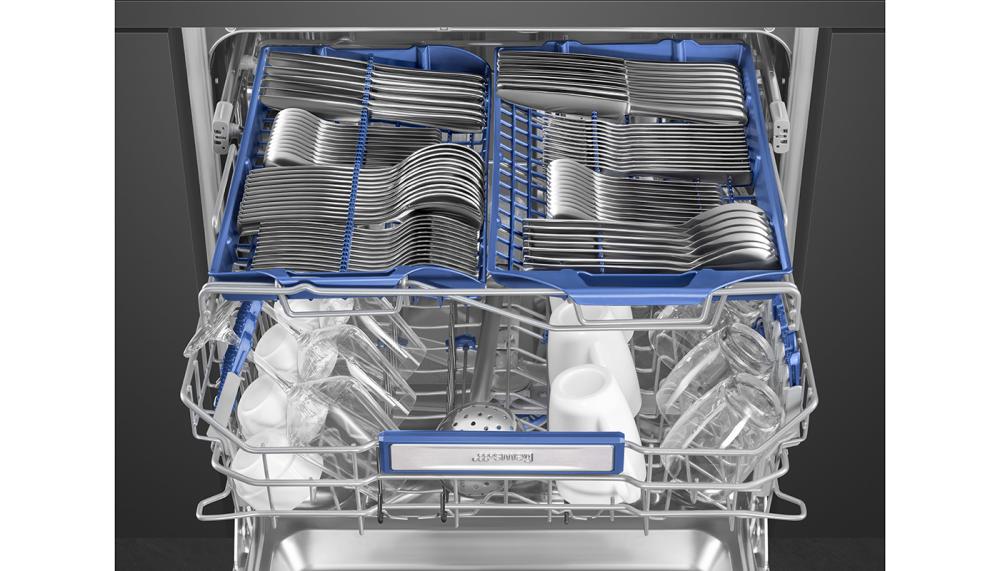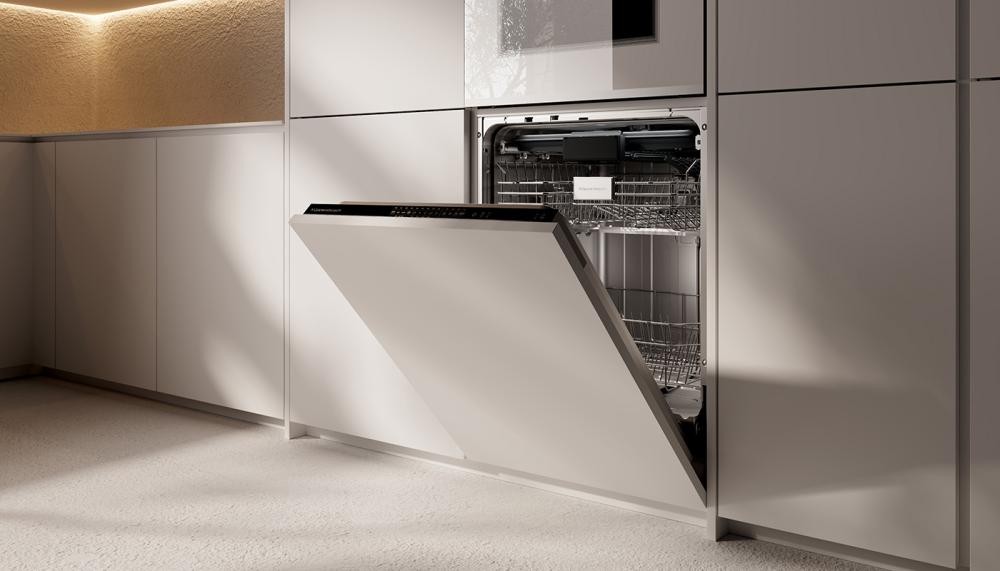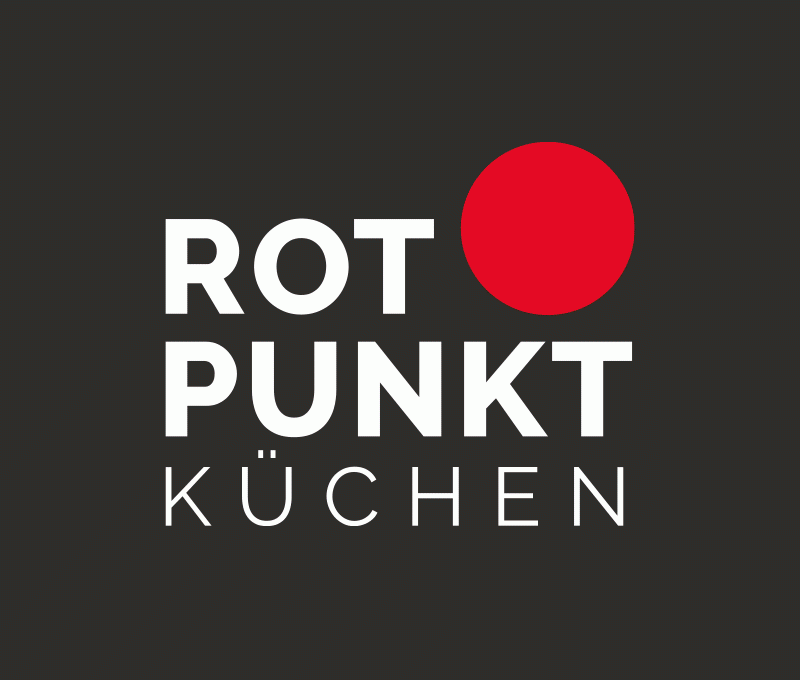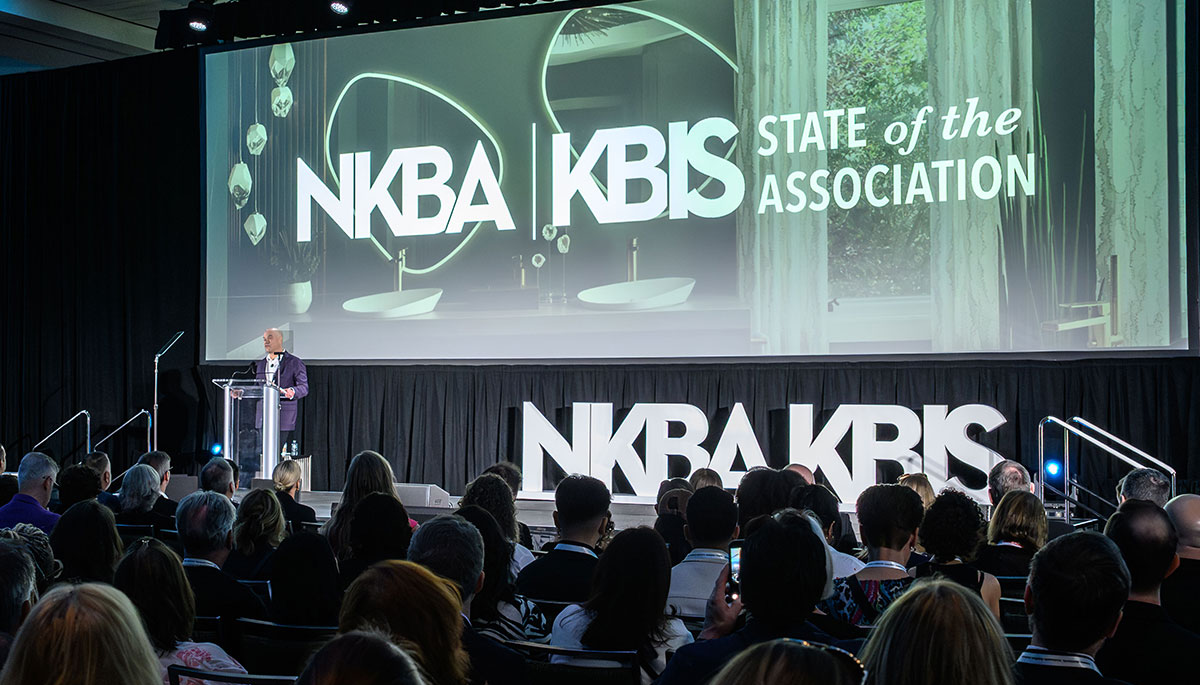Dishwasher eco modes: A key selling point for energy-conscious buyers
Mon 15th Sep 2025 by Sally Smith

Dishwasher eco modes: A key selling point for energy-conscious buyers
Dishwashers' eco cycles, even used just once or twice a week, can save more water and energy than homeowners realise – Sally Smith looks at the sustainability features that can help make that sale.
Dishwasher eco programmes operate using cooler water temperatures, extended cycle times to allow longer exposure to detergents and natural drying using auto-door opening to achieve the same sparkling results as standard cycles, whilst saving on water and energy bills.
"As little as 0.5 to 0.8 kWh of electricity is used by a dishwasher's eco programme instead of the 1 to 1.2 kWh for a standard wash programme with equivalent cleaning performance," explains Sophie Lane, product training manager at Miele GB. "Enormous amounts of energy are unnecessarily wasted as a result of customers not using the eco programme. If customers used the eco programme every second time this would result in massive electricity savings."

There are strict legislative requirements for manufacturers to certify an eco programme as part of the energy label system.
"Our dishwashers also use smart water intake and optimised spray arms, using less energy. Germany's consumer watchdog Stiftung Warentest confirms that even extreme soiling such as baked-on oat flakes or dried-on Bolognese sauce is removed in the eco mode with its longer cycle time," adds Lane.
Heating up water to a high temperature is the most energy-consuming part of a standard dishwasher cycle.

Grace Haly, Smeg’s dishwasher product manager, has a great analogy for the benefits of using an eco mode regularly. "We often compare using eco mode to a car journey. If you drive at 60mph instead of 80mph, it takes a bit longer to reach your destination, but you save fuel and money along the way. The Smeg Eco programme, for example, washes at 50°C and rinses at 55°C, with a total cycle time of approximately 180 minutes."
Users can activate the delay-start function to postpone the start of the wash programme to take full advantage of off-peak hours. "We consider eco mode the default programme and recommend to customers it’s the best way to get optimal performance and efficiency from their dishwasher," adds Haly.

The eco mode on any dishwasher uses much less water than handwashing the same volume of dishes. Steph Skyes, Fisher & Paykel global product manager dishwashers, explains: "These cycles consider time, temperature, chemistry and mechanical action. The eco cycle uses lower temperatures over a longer time, which results in a more efficient clean. The ‘Heavy’ cycle requires more heat and water pressure, using more energy and water to deliver perfect results."


Chloe Blanchfield, product marketing manager at Hisense UK, adds: "While eco mode is designed to save consumers energy and water, this programme is not often chosen for regular dishwasher cycles in the average household. This is usually due to concerns of its cleaning abilities, and the cycle taking a longer period of time. However, it’s worth pointing out to customers that even if the eco cycle isn’t chosen every time, using it more frequently can still lead to notable savings in energy and water.”

It’s worth highlighting to customers looking to buy a new dishwasher the importance of the eco modes. "The eco credentials, these cycles offer will tick the box for significant savings on water, increased energy efficiency, as well as being much more economical than traditional handwashing making it an ideal choice for the eco-conscious looking to save money," explains Bodie Kelay, MD of Küppersbusch Sales UK.

Jag Sandhu, national account manager at Asko, agrees. "Ultimately the eco mode is the most efficient option for routine cleaning, designed with efficiency in mind rather than speed or heavy-duty cleaning, making it very effective for everyday dishwashing – cutlery, plates and glasses – giving excellent results while using less water and energy."

Tags: kitchens, features, appliances, dishwashers, haier, miele, smeg, fisher & paykel, hisense, küppersbusch, asko, hoover, eco modes, sustainability
























